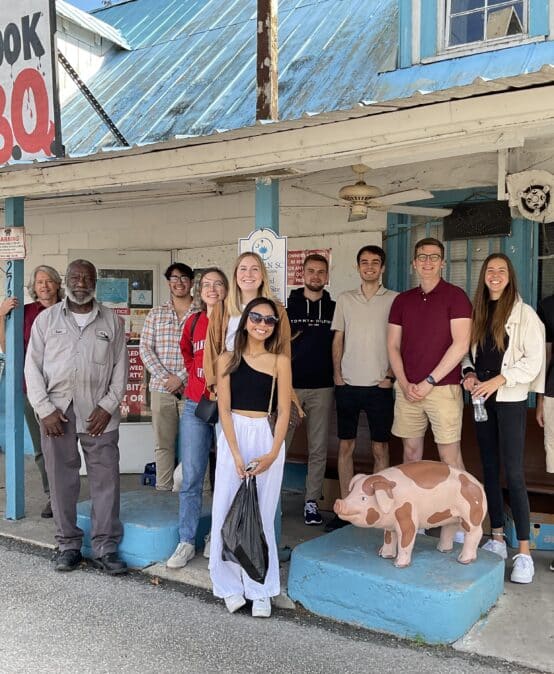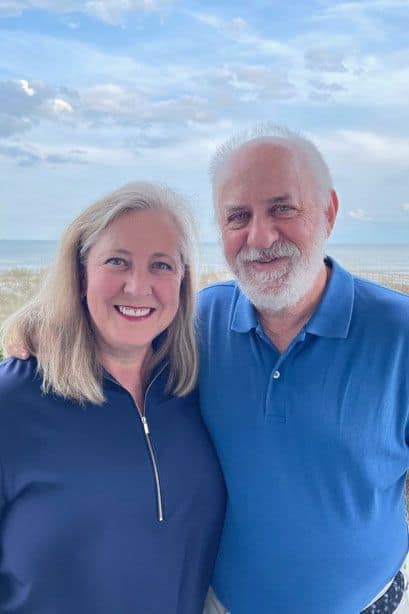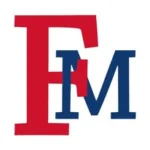November 18, 2022
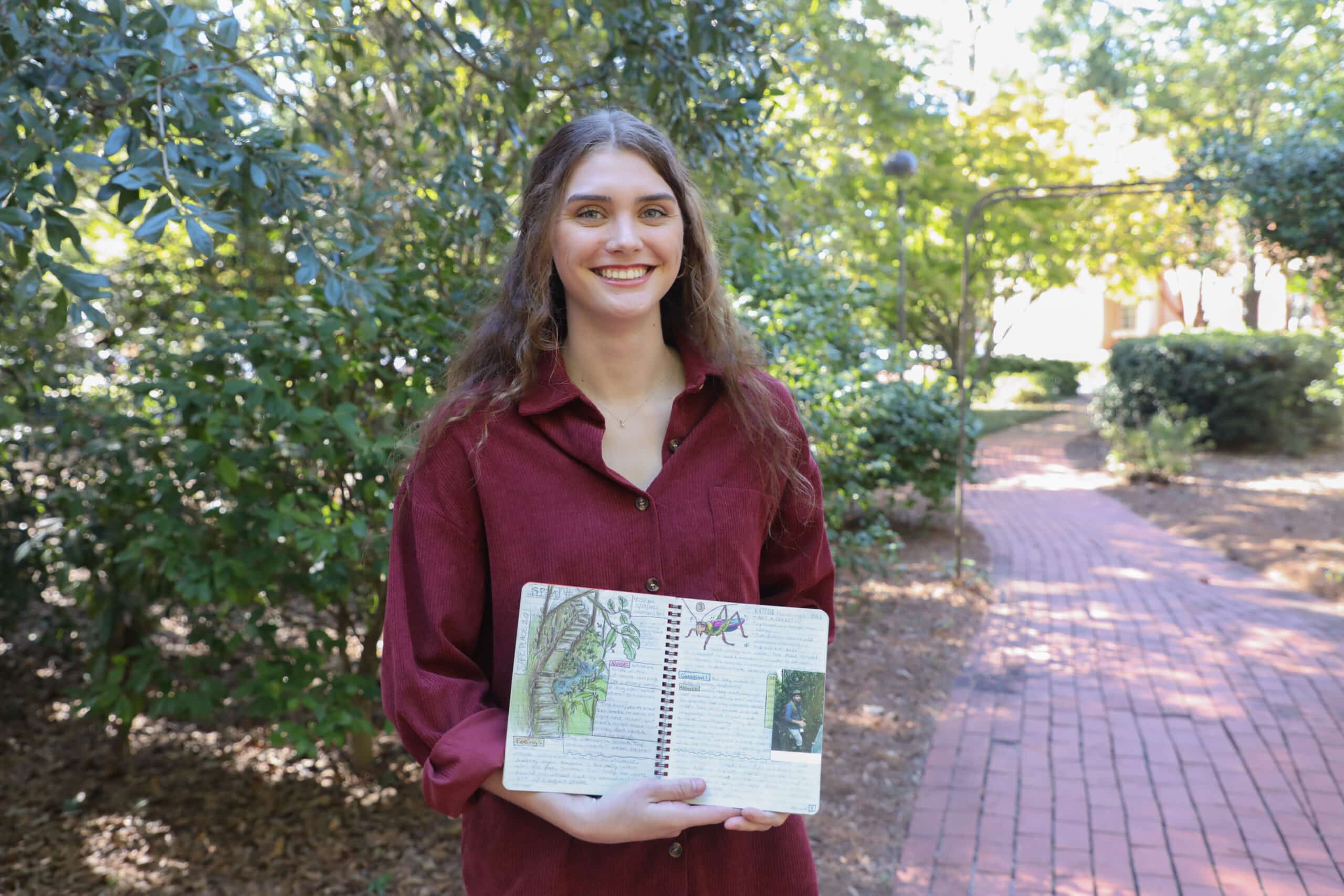
Drawn To Wildsumaco
Drawn to Wildsumaco
By Anna Kathryn Strom | November 2022 | FMU Focus Magazine Fall/Winter 2022
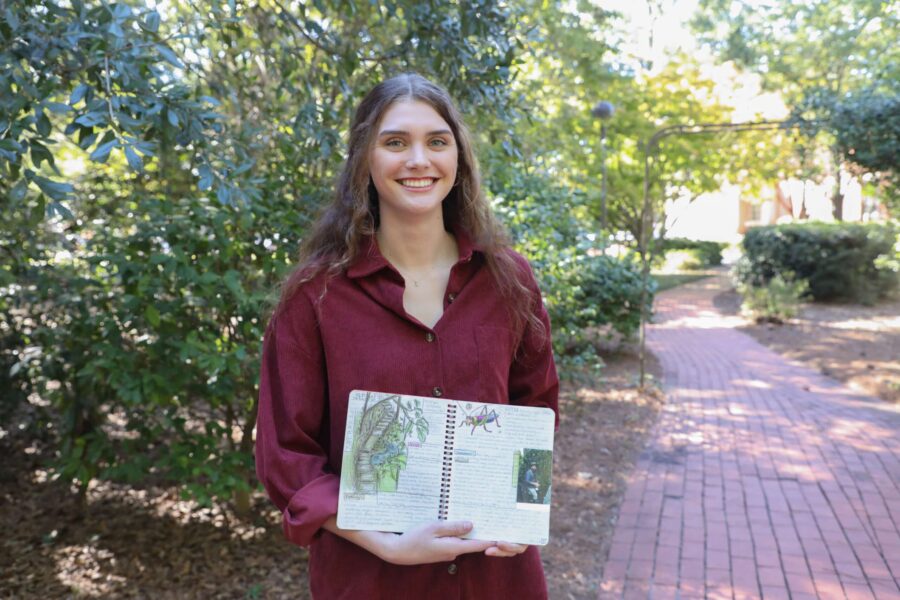
For more than a decade, FMU students have experienced the magic of the university’s Wildsumaco Biological Station in the Ecuadorian Andes.
Breathtaking vistas, up-close encounters with exotic wildlife, an interlude away from the ultra-connected life of modern America — it’s all there in the jungle surrounding the Sumaco volcano, and its power cannot help but transform a young life.
Many have come under its influence. Few have described it better than Brittany Sehnke.
You might even say she was drawn to it.
Sehnke, a senior from Florence, traveled to Wildsumaco last May with a small group of students led by FMU biology professor Dr. Nathan Harness. As part of a three-week Biology 102 course, each student was required to keep a journal. Students spent an hour or more each day documenting their experiences and observations.
Sehnke, an art education major, added a special touch to her journal: a set of skillfully detailed drawings that described her experiences in a uniquely vivid manner.
Harness calls Sehnke’s drawings “the best illustrated observations and journaling that I’ve seen.”
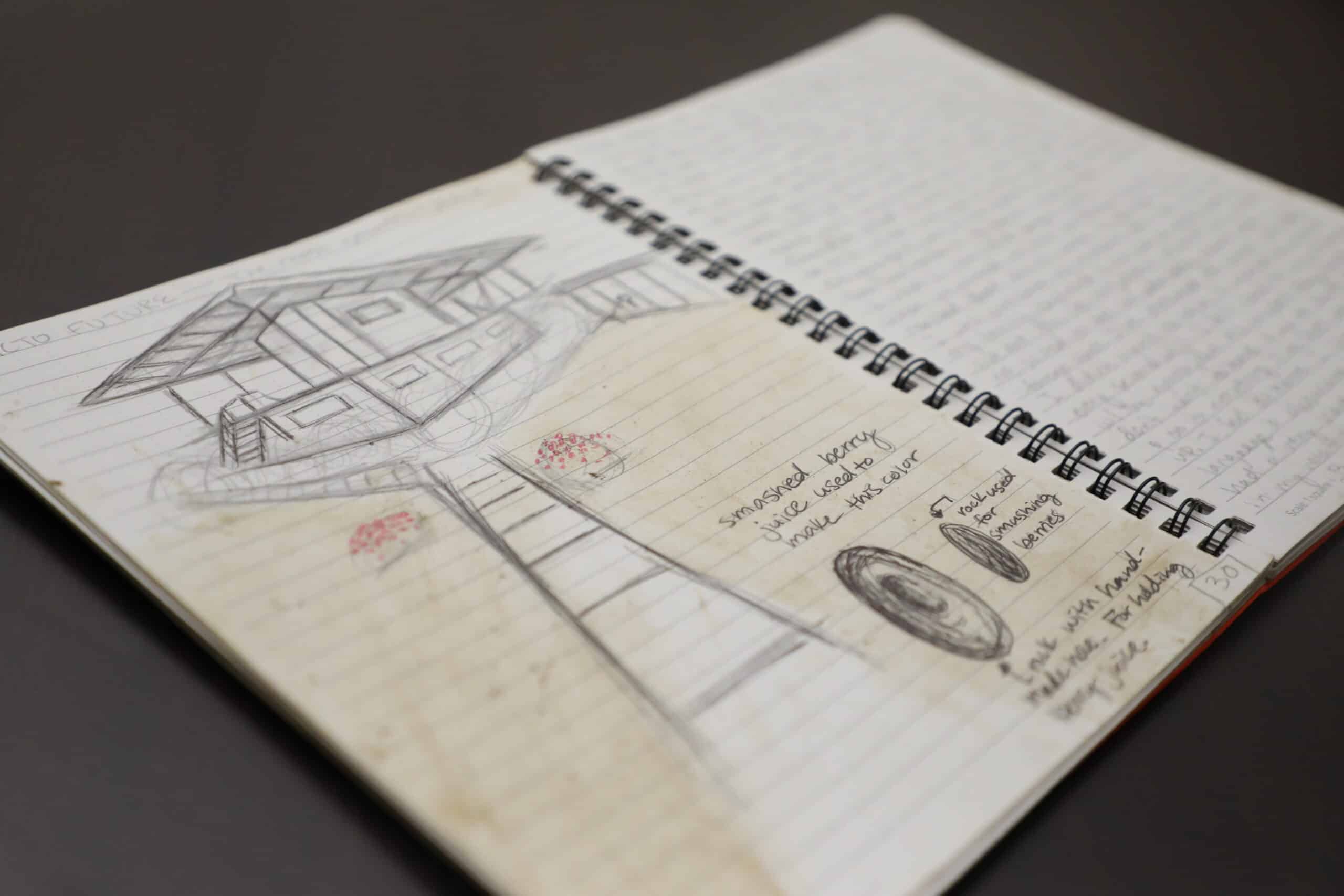
“She was constantly exploring at every scale,” Harness says. “Walking new trails, turning over rocks in a stream or looking closely at a new patch of grass. She was able to take her sense of awe at the place and turn it into (her uncommon journal). Because she’s so good at this, it’s easy to see the huge impact Wildsumaco had on her.”
Art has always been Sehnke’s favorite method of expression.
“I’ve doodled my whole life,” she says.
Her doodling turned into something more serious and complete as she studied art in school. More recently, it helped her discover a career path.
“When I reached my high school art class, I was inspired by my teacher. I wanted to be like her. So I decided I would go to school for art education. It combines my two favorite things, drawing and teaching. I like using art to teach people and watch them grow.”
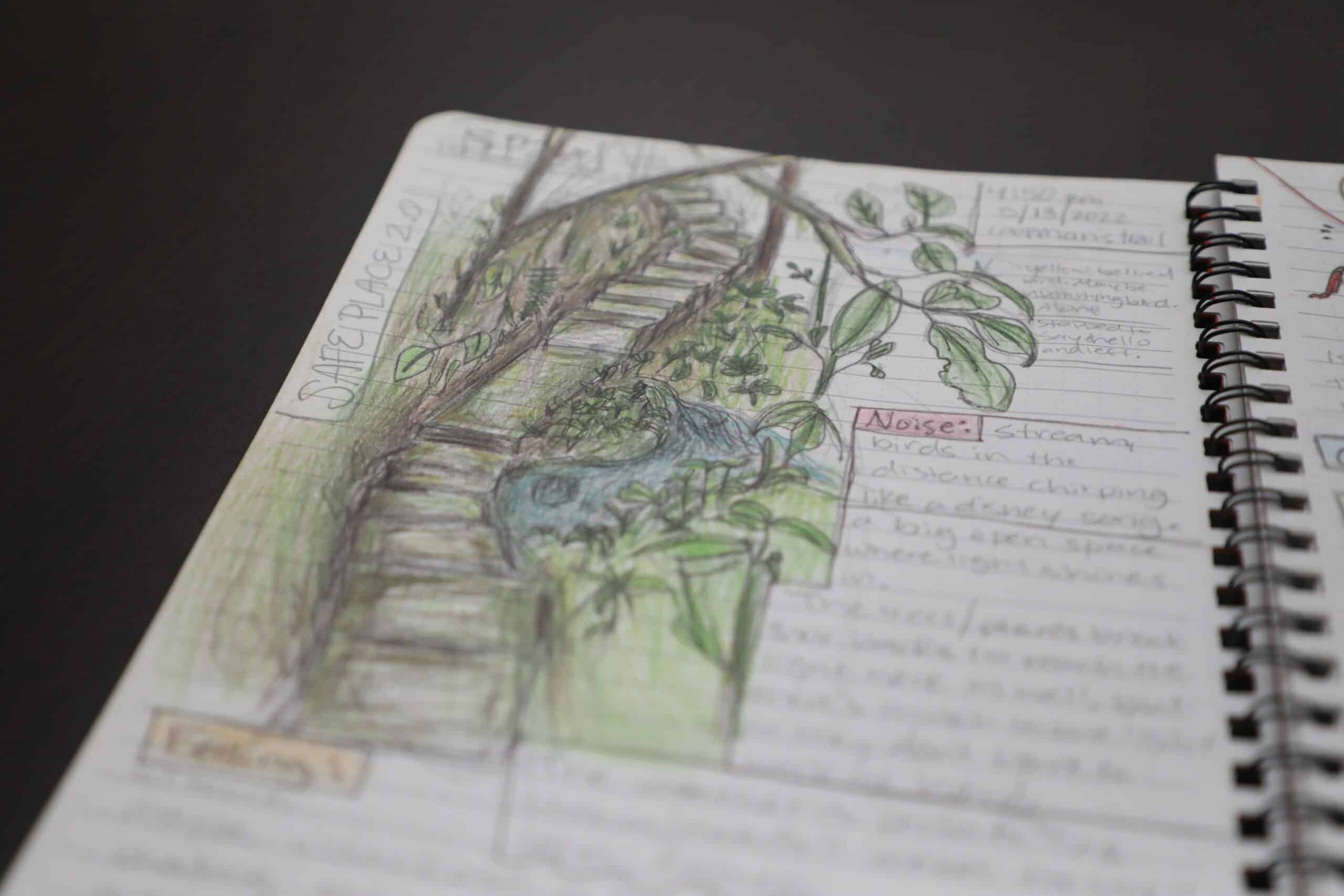
Necessity played a part in Sehnke’s turn to a more innovative and artful form of journaling. Cell phones weren’t allowed at Wildsumaco, so the ever-present cell phone camera wasn’t available to her.
For someone with Sehnke’s skill, that wasn’t a big hurdle.
“It was really hard to go without my phone for the first day, but after that, I got used to it and felt like I didn’t need it anymore,” says Sehnke. “The first thing I did was birdwatch. That’s what first got me wanting to draw things.”
Sehnke quickly became eager to learn as much as possible about the ecosystem around her, and with most technology out of reach, she had to be extra resourceful to create some of the artwork in her Wildsumaco journal. For instance, she made leaf prints with ink she made by smashing berries in a rock she hollowed out herself.
Sehnke’s journal depicts an array of experiences. A run-in with a group of wooly monkeys was the inspiration behind one of her most detailed sketches. She also encountered tarantulas, dart frogs, and hummingbirds (a Wildsumaco specialty) who slurped sugar water out of the students’ own hands.
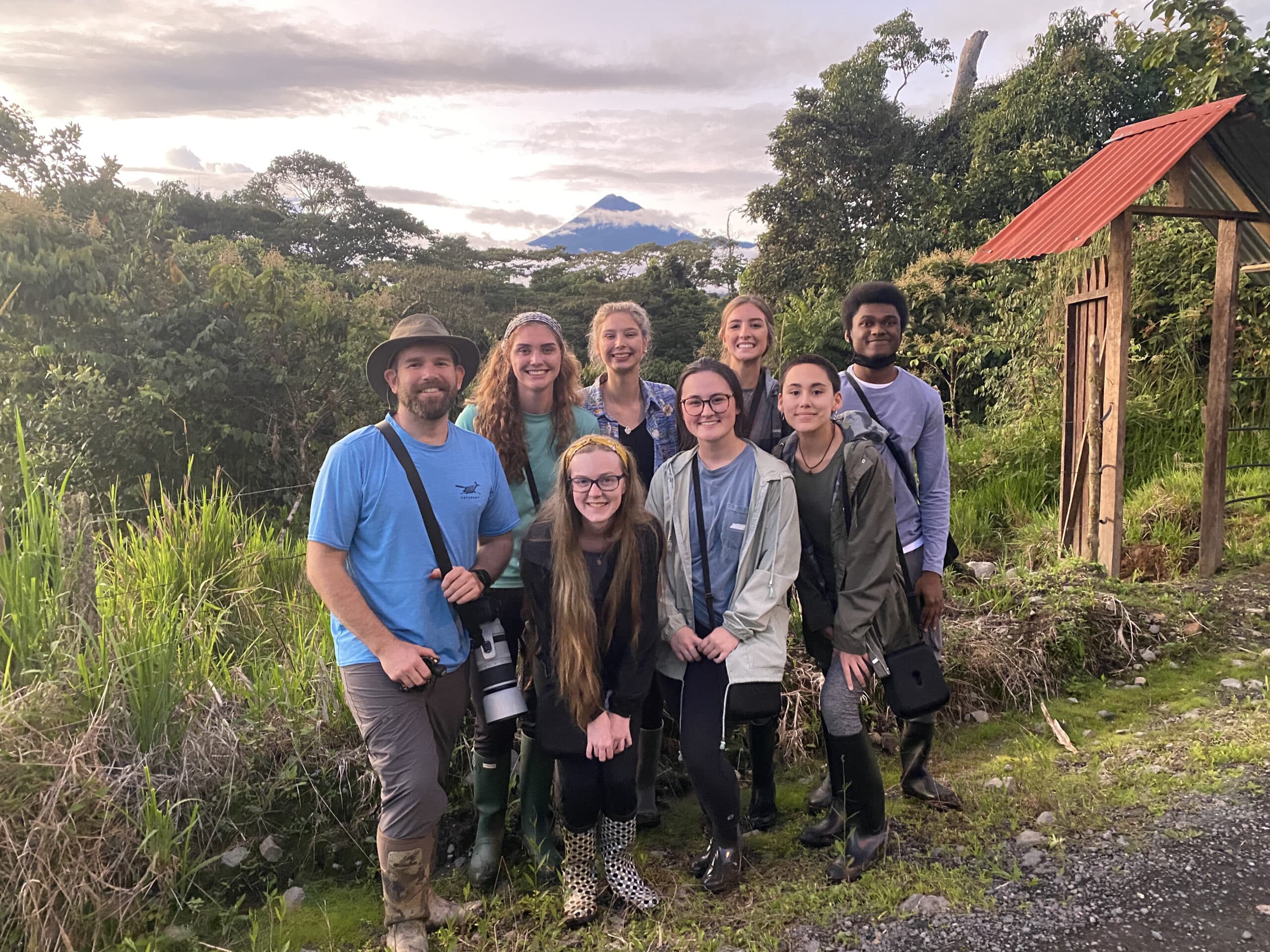
Experiences like that cannot help but affect young lives. They make impressions that last a lifetime.
“The trip changed all of us,” Sehnke says. “I think that was the happiest I’ve ever been in my entire life. I enjoyed meeting new people, being present with the people I was with, and learning a new culture. I definitely want to keep doing those things.
“I think everybody should do something like this at least once in their life,” she says. “It’s just eye opening. You learn a lot about yourself. I wish I could still be there. If it were up to me, I wouldn’t have come back.”
Harness says that while Sehnke was able to express the emotions surrounding her journey in a particularly interesting way, her experience was not unique.
“Most of our students come back from Wildsumaco having had a transformative experience,” says Harness. “That’s the big reason we have a field station there, and why we spend so much effort bringing students.
“The field station is an amazing place to learn about ecology, but it is more than that,” Harness says. “Being in a place like Wildsumaco changes your worldview. Students come back with a different understanding of nature and culture and how they fit into the world. They’ve got new passions and a different sense of what is possible for them.”
Every student in Sehnke’s group was an education major. Usually a trip for upper-level biology majors, Harness chose to extend this opportunity for the first time to his Intro to Biology for Education Majors class – a course he teaches yearly. The objective of this particular class is to instill the importance of science in future teachers, and give them the tools they need to help their students engage with nature.
“There is really no more powerful way to make impassioned educators than to show them the magic of science in a place like Wildsumaco,” Harness said. “That builds more effective teachers for an entire career’s worth of their future students.”
Due to the success of this group of students, Harness plans to return to Ecuador with another group of education majors for the next trip in summer 2023.
The connection between students in the same major likely added to the bonds the group formed. Group members are now busy looking for ways to keep their “Wildsumaco high” going.
“We’re all still in touch,” says Sehnke. “We’re starting a nature club on campus to introduce other students to nature journaling. The club gives us a reason to go on hikes, look at bugs, and do the same things we did together in Ecuador. Even though it’s not the same as being in Ecuador, we want to try to bring that experience here.”
